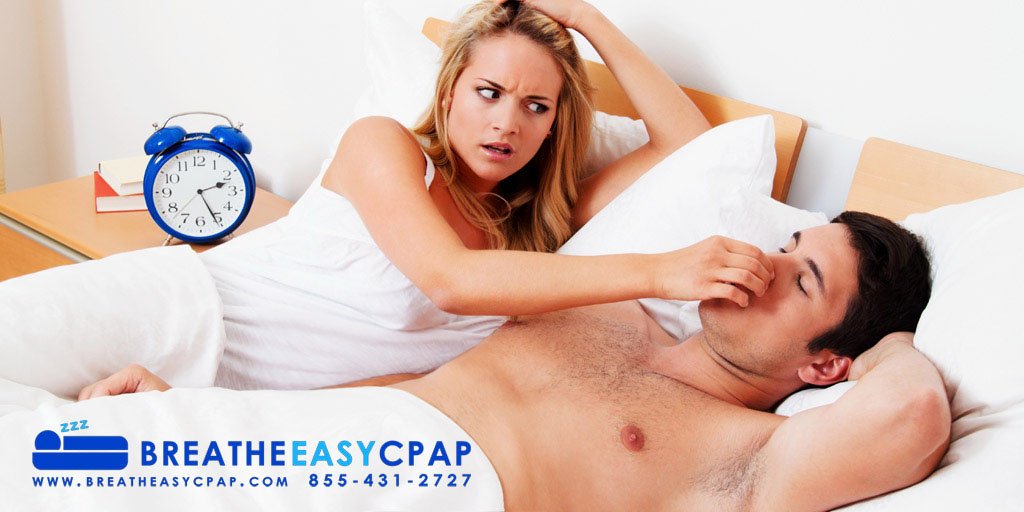Not All Snorers Have Sleep Apnea
Learning that you’ve been snoring at night can be an embarrassing experience, especially if you’ve been keeping your spouse up all night long. However, snoring, or the sound created by breath passing through a narrowed upper airway, is more common than you might think. In fact, the American Academy of Otolaryngology says that up to forty-fivepercent of adults occasionally snore and twenty-five percent do so habitually.
Snoring can be caused by a person’s sleeping position, a larger than normal neck circumference, changes in the soft palate during rest, or as a normal byproduct of aging. So when should a person worry about whether or not their snoring is the expected process of aging or something more serious like sleep apnea?
When Should I Ask My Doctor About My Snoring?
Snoring is one of the hallmark symptoms of sleep apnea, the intermittent cessation of breathing while asleep. Sleep apnea can lead to serious cardiovascular disorders as well as mood and memory changes if left untreated..
Although most people who have sleep apnea do snore, not everyone who snores has sleep apnea. If you’re wondering whether this condition is responsible for your snoring, look for some of the other common symptoms like morning headaches and dry mouth. You may also find that you are urinating more often during the night because of restlessness and frequent waking. Many people report feeling exhausted during the day despite having had eight hours of rest. If you’re experiencing any of these symptoms accompanied by snoring or are concerned that you may be suffering from sleep apnea, call your doctor to schedule an appointment.
What Can I Expect From My Doctor’s Appointment?
The day before your appointment, create a list of your medical conditions as well as the medications and vitamins you are taking. Many conditions, such as Gastroesophageal Reflex, deviated septum, and issues with your brain’s ability to send signals, can increase your risk of developing sleep apnea.
On the day of your appointment, your doctor will ask you for your symptoms and examine your nose, mouth, and throat. Some doctors my require you undergo asleep study. Many of these studies can be performed at home by writing down your habits before bed and the times you wake at night, while many are completed in a lab where your blood pressure, heart rate, and other vital signs can be closely monitored.
What if I have Sleep Apnea?
If your doctor feels that your snoring is related to Obstructive Sleep Apnea, the most common form of the condition, she will likely suggest you begin Continuous Positive Airway Pressure therapy via a CPAP machine. This therapy is painless, effective, and stops snoring immediately. With a CPAP machine, you and your spouse will sleep soundly while preventing secondary illnesses related to sleep apnea such as diabetes and high blood pressure.
Discuss with your doctor the type of CPAP device they recommend. Shop around for a machine and sleep apnea mask that best suit your needs. Buy your CPAP system from a quality and reputable medical supply store like www.breatheeasycpap.com so that you’re guaranteed a positive shopping experience.
Breath Easy CPAP consists of a team of dedicated Registered Nurses, Respiratory Therapists, and Physicians, ensuring that your device is not only a cost-effective choice, but a quality item from a company who cares about their customers.

